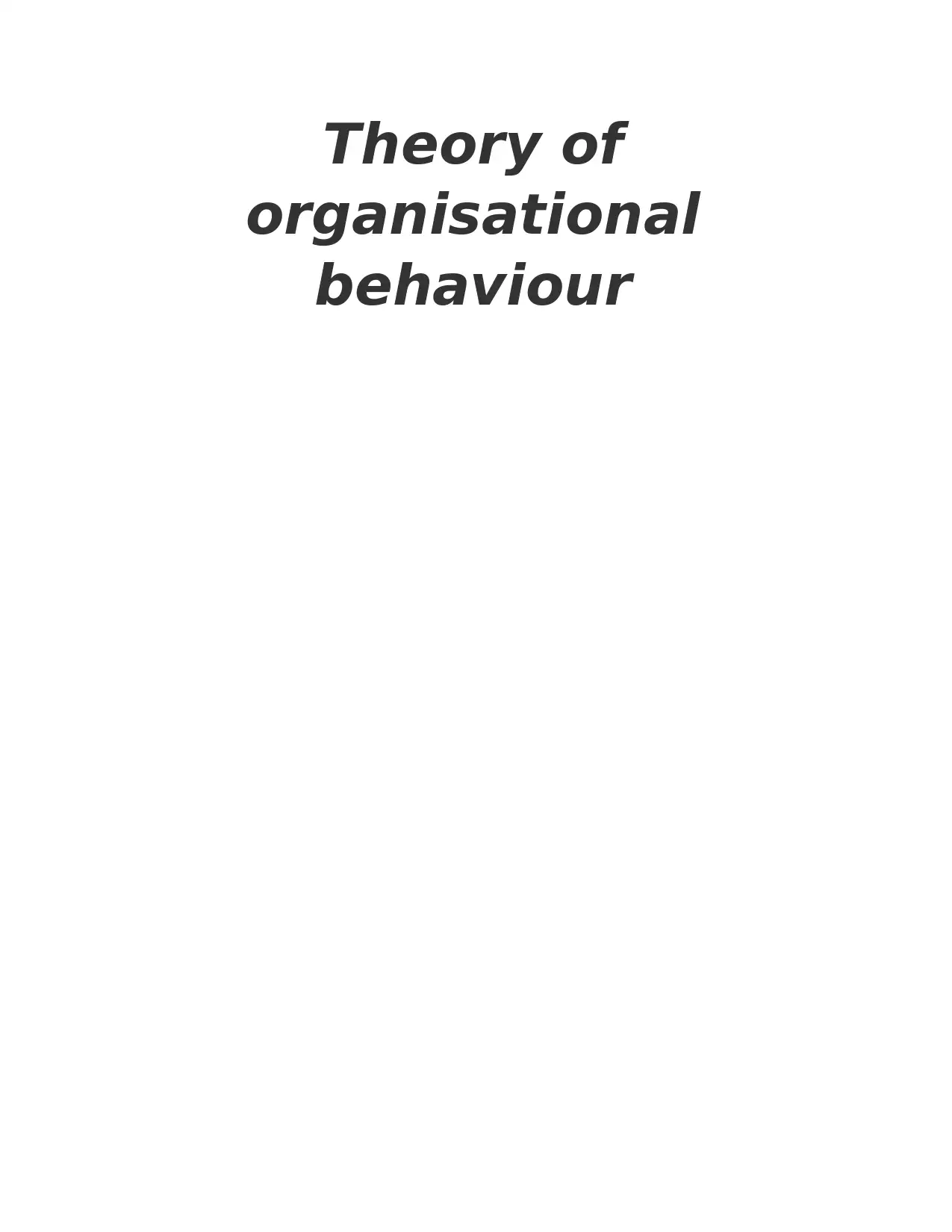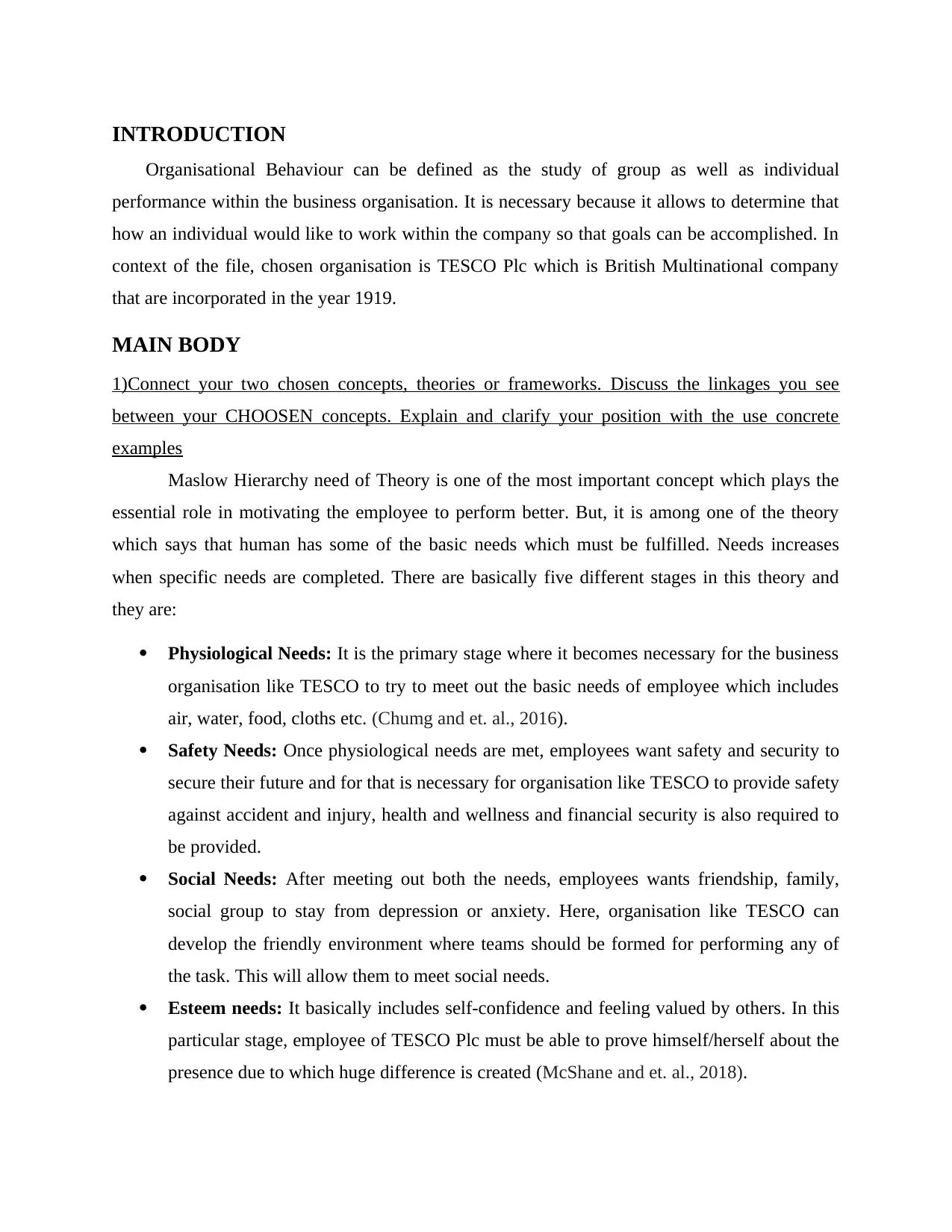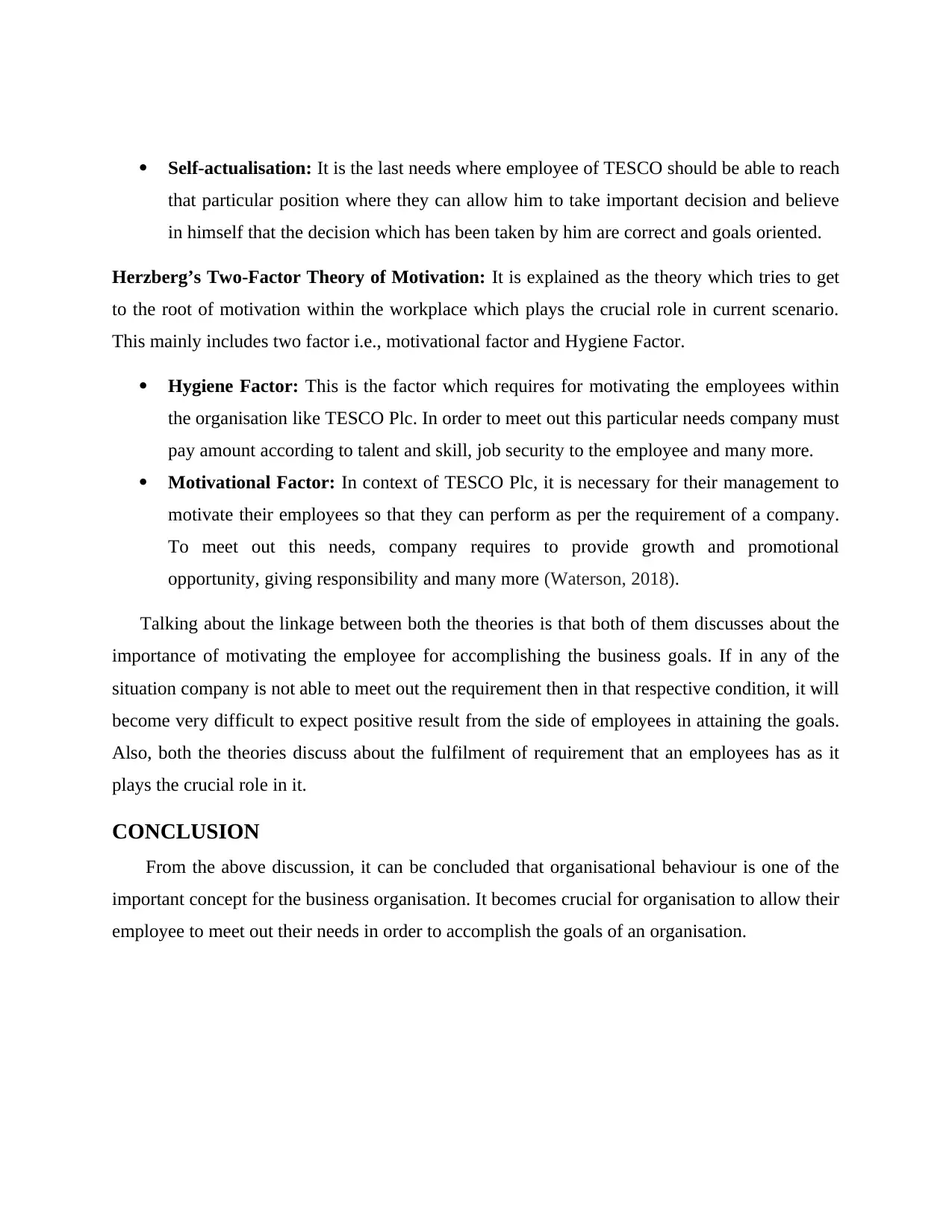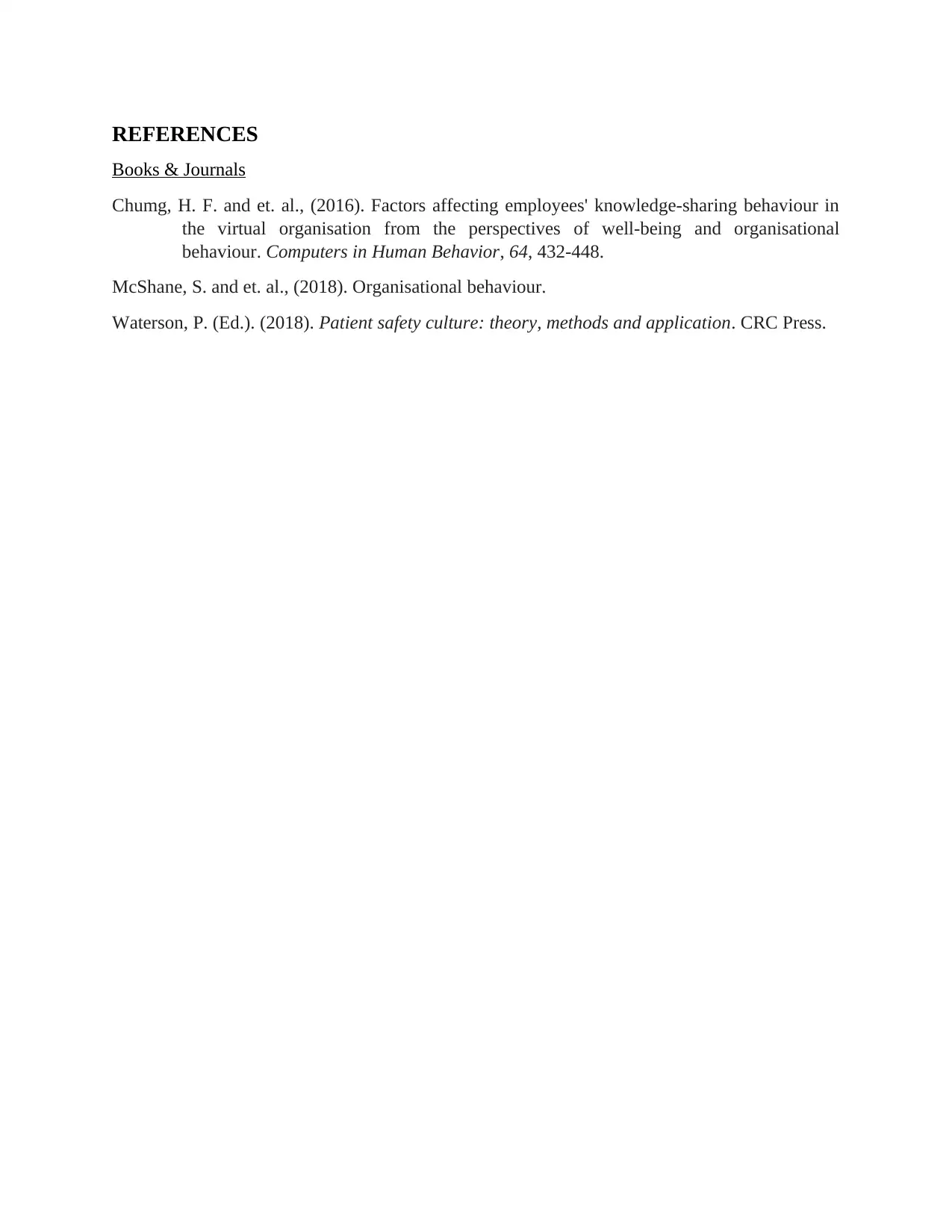Organisational Behaviour Report: TESCO PLC - Theories Analysis
VerifiedAdded on 2023/01/11
|4
|811
|100
Report
AI Summary
This report examines organisational behaviour within TESCO PLC, a British multinational company, focusing on the application of Maslow's Hierarchy of Needs and Herzberg's Two-Factor Theory of Motivation. The report explores the linkages between these two theories, emphasizing their role in employee motivation and achieving business goals. Maslow's theory is applied to understand how TESCO can meet employee needs at various stages, including physiological, safety, social, esteem, and self-actualization. Herzberg's theory is then used to analyze motivational and hygiene factors within the workplace. The analysis highlights the importance of fulfilling employee needs to foster a positive work environment and achieve organizational objectives. The report concludes that understanding and addressing employee needs, as discussed by both theories, is essential for organizational success. The report also includes relevant references to academic journals and books supporting the analysis.
1 out of 4










![[object Object]](/_next/static/media/star-bottom.7253800d.svg)